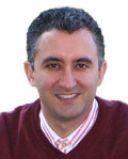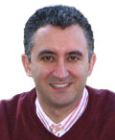The recent killing of Osama Bin Laden was greeted, as we all know, with celebrations in Washington, New York, and Boston - the cities most implicated in the 9/11 attacks. Some have seen these celebrations as unseemly; others see them as natural.
What strikes me is that those who celebrated were, almost entirely, college students.
I think that's the key feature: these young men and women were 8 to 12 years old when the 9/11 attacks happened. They experienced the trauma through the eyes of children. They now celebrate payback with the fervor of young adults.
Those of us who are thirty or older have somewhat different emotions; rather consistently, those who experienced 9/11 as adults appear to react to Abbottabad as slightly more jaded adults. We don't celebrate; we're not even surprised; it all seems anticlimactic
I wonder, though, whether we slightly older adults can say that our reaction is "right" as opposed to our slight younger adult friends. As long as the wars on terror go on, it is they and their friends who will be doing the fighting; we just subsidize it through the IRS.
I can empathize with the college students in Boston and New York and DC. They are the 9/11 generation; they grew up in a world in which war was normal, where seeing soldiers in airports is routine, where their friends and relatives go to combat. When I was 9 years old, the Vietnam war finally ended; my childhood was a period of war-weariness, of rejection of war. I grew up expecting peace, hardly ever seeing soldiers in public places.
Their childhood is not my childhood. They grew up with fear and hatred and war. No wonder they took to the streets. They could finally exhale a bit.
And what about the next ten years; what kind of world will today's children - my children - experience?
After Vietnam, we thought a never-ending war - far away, without any clear goals - would never happen again. We were wrong.
Maybe I'm just another jaded adult, but I don't think I'll be surprised if these wars keep on happening, if not against this fellow, then against that one. I hope I'm wrong; the young idealist in me wishes so. But my experience would suggest otherwise.
Erik Erikson, so famous for his work on adolescence, once made a neglected comment: Adulthood, he said, is the most difficult stage of life.


